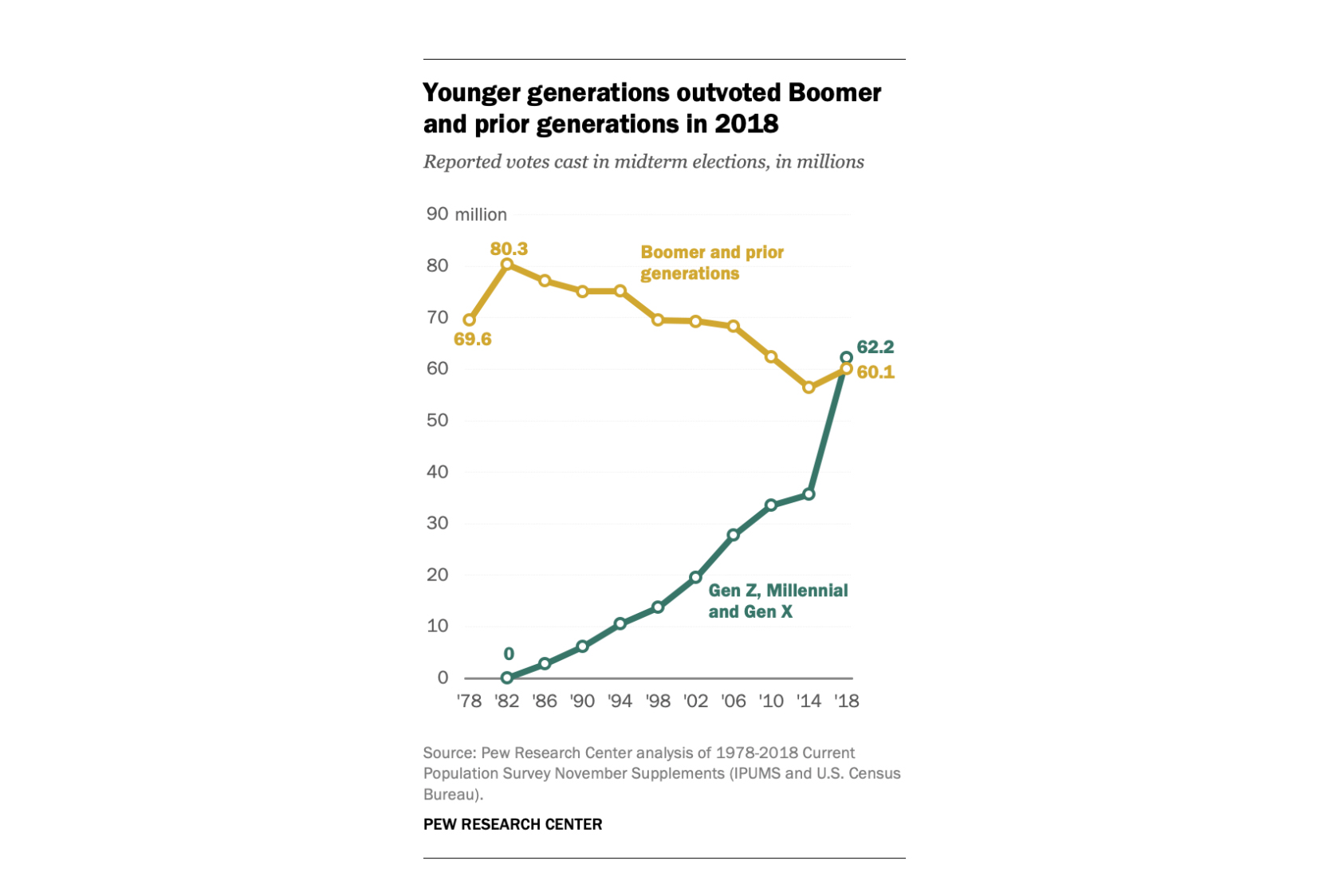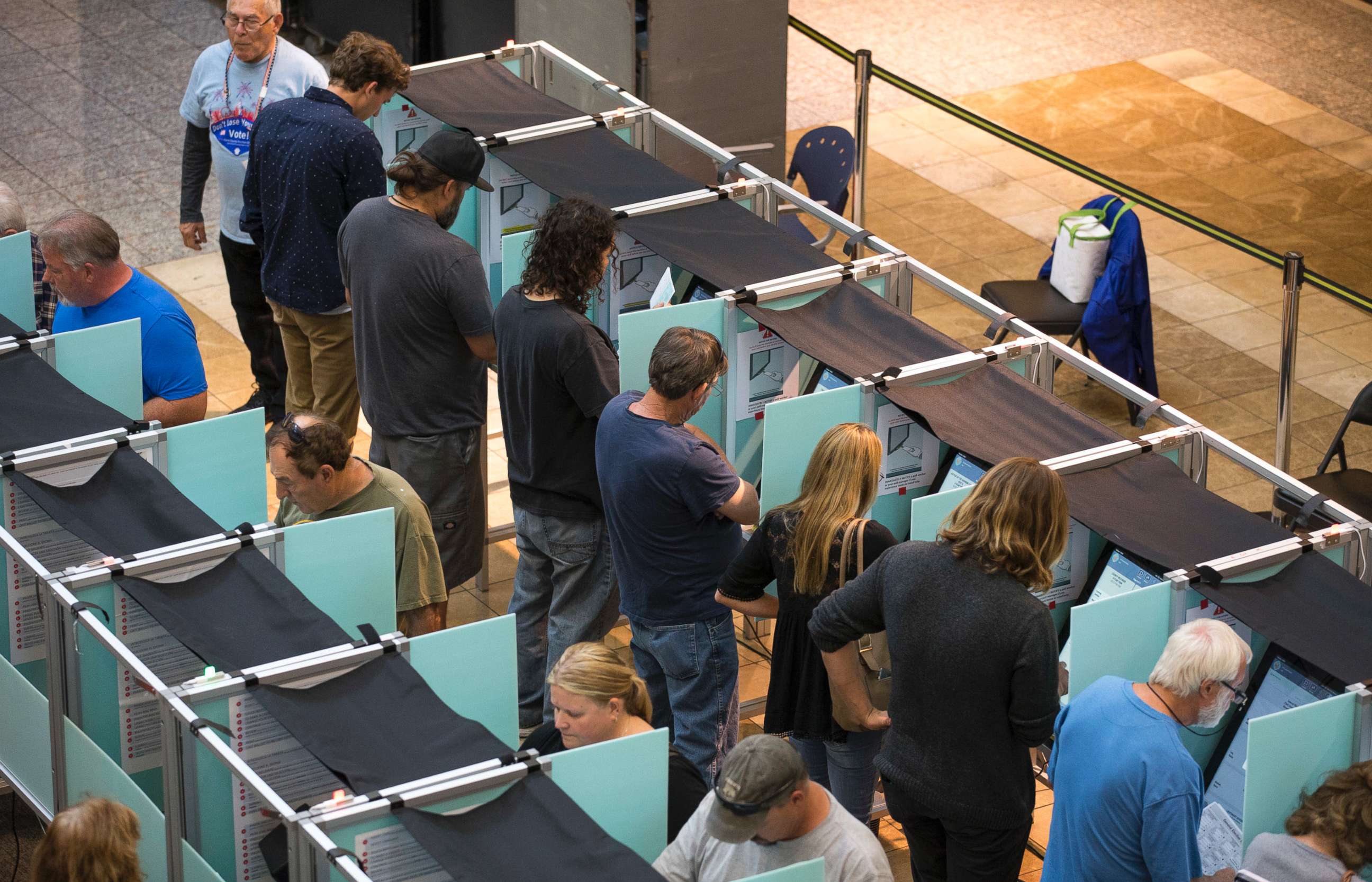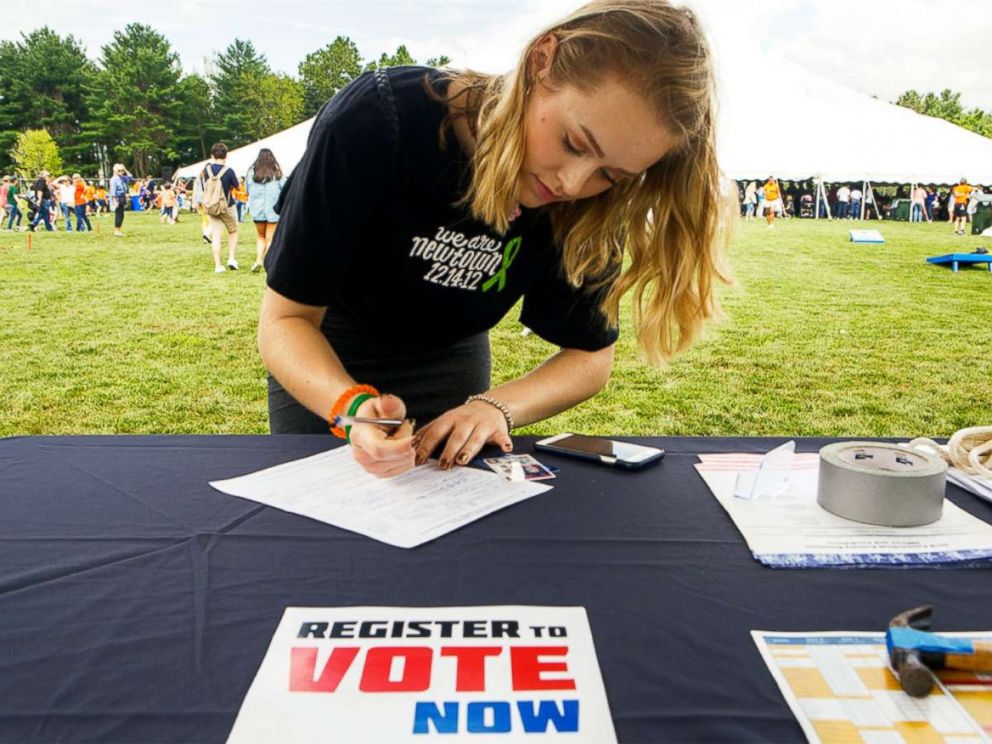Gen X, Y, Z voters outnumbered Boomers and others in 2018 midterms
New report indicates that younger generations outvoted their elders in 2018.
Generations X, Y and Z voters cast more ballots than Boomers and older generations in the 2018 midterm elections, according to analysis from the Pew Research Center.
While Baby Boomers have long held political sway due to their large numbers, shifting demographics could position the three younger voting blocs to have a decisive influence in the 2020 election and beyond.
The younger voting groups cast 60.2 million votes – 51% of the total vote – in the 2018 midterm elections. In contrast, Baby Boomers and older generations accounted for 60.1 million votes – with Baby Boomers comprising 36% of the total vote, according to Pew.
All generations, including Baby Boomers, saw an increase in turnout compared to 2014. And while the turnout for Baby Boomers was higher than that of younger generations, the increase in turnout for younger generations was much more striking, according to the researchers.

Gen Y, or "Millennial," turnout nearly doubled from 22% to 42%. For the first time in a midterm election, over half of Gen X voted. And nearly a third of Gen Z – those ages 18 to 21 in the analysis– turned out for the first midterm election they were eligible to vote in.
Such a pronounced increase in turnout among younger generations led them to outvote their older counterparts.
In 2016, the Baby Boomer population stood at 74 million, and there were 71 million millennials. But this year, the number of millennials is projected to increase to 73 million, while the Baby Boomer population will go down to 72 million. And, as the Boomer population continues to decline, Gen X is projected to surpass them in 2028.
The growth in millennials is attributed to younger immigrants entering the country, while the number of Boomers is in decline given mortality rates for the demographic which exceed the number of older immigrants arriving to the U.S.
Steven Olikara, founder and president of the Millennial Action Project, a non-profit organization aimed at bipartisan cooperation amongst young political leaders, said he was not surprised by the turnout of millennials in 2018 because they have been activated in unprecedented ways over the past few years.

"One of the most promising trends I’m seeing is an increase in civic engagement. Now, our generation recognizes it’s important to be involved in politics and to vote if we want to move the needle on issues we care about," he told ABC News.
Olikara identified immigration as a central issue which activated the younger base to get out and vote in 2018.
"I think the response we saw was not so much a reflexively partisan issue, because millennials are the least partisan generation in America, but it was a response to the administration’s policies on immigration and refugees," he said.
"The Trump effect has been huge in inspiring a large number of younger people to get involved for the first time," stated Nathan Rubin, the founder of Millennial Politics, an organization shining a light on progressive candidates and causes.
Rubin added how movement surrounding gun reform led by groups such as March for Our Lives was pivotal in mobilizing young voters.
"The school shooting generation is coming of age," Rubin said. "I don’t think there’s any way to deny the impact that the March for Our Lives group, as well as all other groups that are fighting for common sense constitutional gun reform, have had."

With the rise in numbers of these younger generations and more 17-year-olds turning old enough to vote, Joan Mandle, the executive director of Democracy Matters, a non-partisan organization committed to organizing students for democracy reform, highlighted the importance of youth voter registration.
"Getting on college campuses and registering students, and also going to the places where young people congregate who are not necessarily students," Mandle told ABC News as essential to increasing youth engagement.
Elevated political participation levels among younger voters could also shape the issues placed at the forefront of the 2020 election. Olikara cited how young voters have already mobilized around climate change and pushed candidates to articulate their position on it.
"It is largely a millennial-led movement that has declared climate change to be part of the 2020 agenda," he told ABC News.
Other issues he noted as important to young people include the student debt crisis, future of work, and fixing our broken political system.
Olikara also offered some advice to presidential hopefuls looking to garner the support of younger voters.
"The most important thing to be doing right now is to be simply listening," said Olikara. "Listen not only to the priorities that young people have, but also, and even probably more importantly, listen to how young people are framing the issues because that’s how you’re going to overcome the partisanship and dysfunction in Washington."




